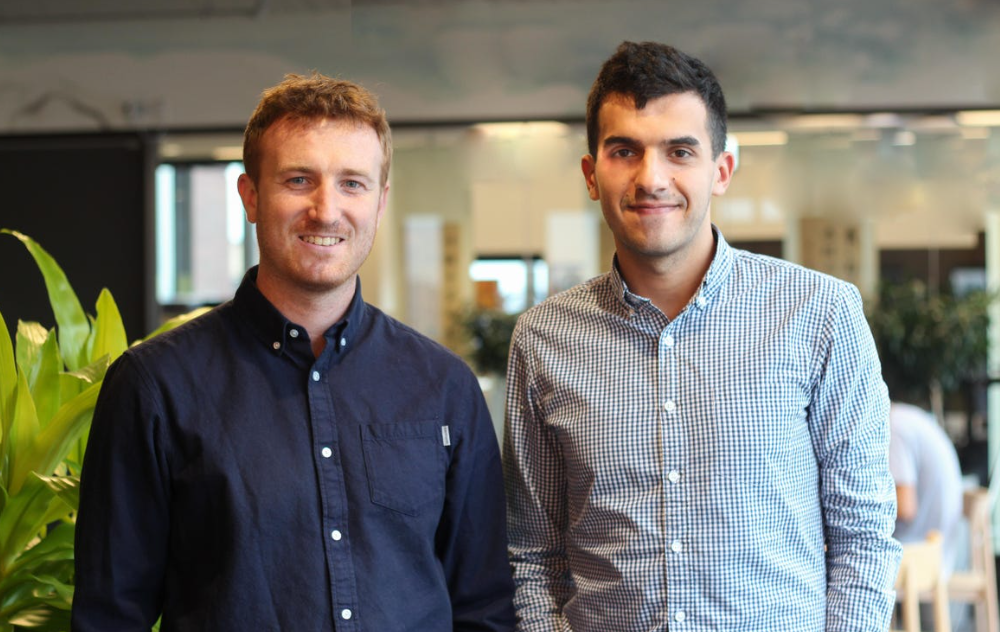Rumen Hristov
From Shumen's Logarithms to Forbes' 30 Under 30
Time to read: 5 min.Young, accomplished, and driven. An honorary citizen of his hometown Shumen, Bulgaria, a multiple gold medallist in computer science, and a true innovator. He ranks distinguished in the “Healthcare” category of Forbes’ esteemed “30 Under 30” list. A graduate of Shumen’s Mathematical Gymnasium and Biserka Yovcheva’s talent incubator – “A&B” Programing School, Rumen Hristov has been solving logarithms since age ten. From an early age, he was determined to pursue higher education in the United States upon graduating high school. This determination resulted in a Master’s degree at the acclaimed Massachusetts Institute of Technology (MIT), renowned as one of the world’s best institutions for computer science education. In 2018, Rumen ran 26.2 miles in 3 hours and 47 minutes at the 41st San Francisco Marathon. What do logarithms, running, and healthcare share, and what is the formula for success? Rumen Hristov divulges his story to Argent Publications.
Hello, Rumen! Let’s start our conversation with the town we’re both in, Shumen. What groundwork did your school establish for your journey to success?
I am profoundly grateful to School “A&B” for laying the foundation of my programming knowledge. I will never forget where I started.
You were set on continuing your education in the United States from an early age. What was the critical factor in your university choice for your next step?
I was in seventh grade when Rostislav Rumenov (another graduate from Shumen’s Mathematical Gymnasium) won a gold medal at the International Olympiad in Informatics and was admitted to MIT. That’s when I realized that if I put in the effort and performed exceptionally in these competitions, I could have the chance to attend the world’s top university for computer science. This inspired me greatly.
When dreams come true, they sometimes differ from our expectations. Did you experience any fear of the unknown?
I wouldn’t say the emotion was fear, per se. From a very young age, I’ve been accustomed to planning things meticulously, knowing what will happen, and working tirelessly until the dream actualizes. I maintain the same mindset now. I have daily, weekly, and monthly plans, and a clear goal. It doesn’t always unfold precisely as envisioned, but having something to pursue and a goal to attain is crucial.

In addition to being a winner in numerous prestigious Olympiads, you actively participate in marathons. What is the feeling on both “tracks”?
Marathons are a great way to break away from monotonous days in front of the computer. Running allows me to be outdoors, surrounded by nature, and physically active. What both have in common is that, like any competition, they require immense preparation and discipline. Perhaps that is the most substantial connection between them. As I said earlier, one must never stop fighting until one achieves their goal in the race.
Let’s talk about the “Emerald” project. What is it, and how did the idea come about?
“Emerald” started as a project at the MIT lab and later developed into my startup. The concept of this technology is to revolutionize the way doctors, medical researchers, and patients manage healthcare at home. For example, people with chronic illnesses typically have check-ups every six months. Based on a 15-minute examination, during which the doctor asks about the patient’s overall condition throughout the elapsed time, they decide whether to decrease or increase the patient’s medication. I believe this is inadequate because you cannot accurately summarize a period of 6 or 12 months in 15 minutes. The idea of “Emerald” is to bridge the information gap between examinations by monitoring patients’ health in a home setting. The device is a sensor placed at home that tracks their activity. Using machine learning algorithms, the sensor determines whether a person is sitting, lying, or moving. We can extract vital signs such as breathing rate and pulse, and use them to analyze sleep and its various phases. Recently, “Emerald” found its use in the fight against COVID-19, allowing us to monitor patients in isolated home environments. Maximum effort is needed during such crises because everything is new and unknown, requiring significant work.
“Emerald” earned you the prestigious Forbes “30 Under 30” recognition. How does it feel to receive acknowledgment at that level?
The feeling is incredible. It’s an enormously significant recognition and shows that we are on the right path, which is what matters most. The fact that a magazine like Forbes acknowledges the importance of what we are doing gives us even greater motivation to continue.
You’ve been living in Boston for years. What do you miss the most?
One of the main things is my hometown, Shumen. What I miss the most is my family. Of course, I miss the A&B School, where I spent a significant portion of my time back home. I don’t have many friends in Shumen, but the few who remain are greatly missed.
Shumen is a very different and peaceful place compared to the locations I’ve been to in recent years. People there have different outlooks on life. Here, work is the primary focus, while people prioritize their happiness and life above all in Shumen and Bulgaria as a whole. Short-term happiness is important to them because of its many positive aspects. I miss this mentality to a great extent.
What advice would you give to young people hesitant to pursue their dreams?
For those who desire something better – everything can be achieved with a lot of hard work. I started in Shumen, and I didn’t have much. I never gave up, thanks to my parents, who supported me immensely. I would tell them to keep working and keep striving.

